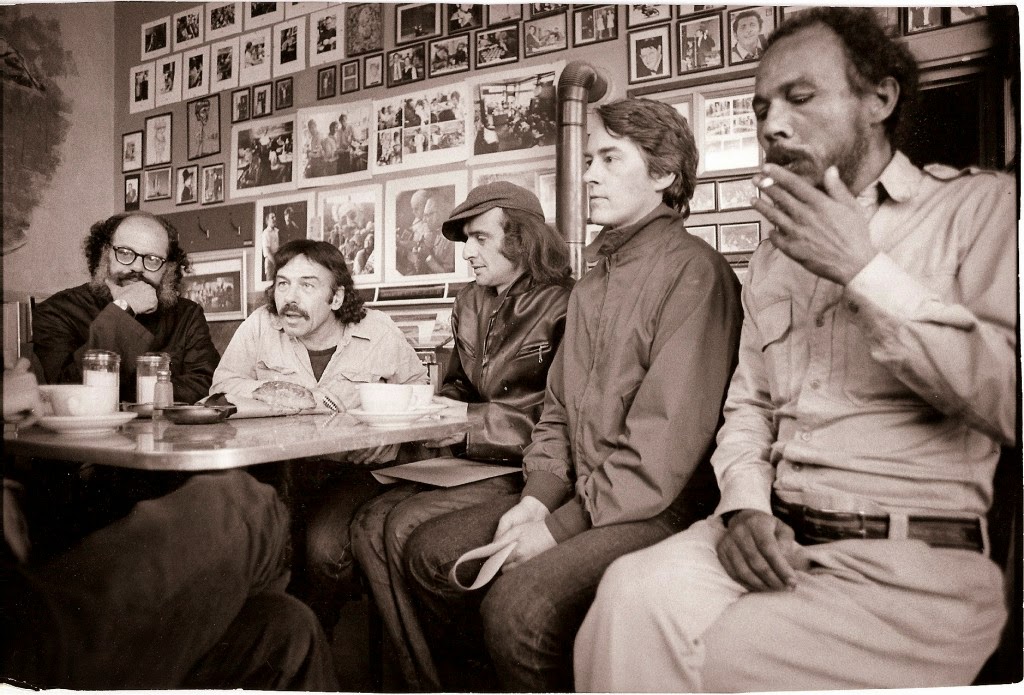
Tonight in New York City,aWilliam S Burroughs 101 Birthday Celebration.
Last night in London they were celebrating
Last night in London they were celebrating
Meantime, in Denver, it's the 6th Annual Neal Cassady Birthday Bash
& tomorrow, in Paterson, New Jersey, Feb. 7, 1 to 3 p.m, in the Paterson Hamilton Club Building, the 2014 Allen Ginsberg Poetry Awards- the annual poetry reading and award ceremony hosted by the Passaic County Community College
[Allen Ginsberg - Photograph by John "Hoppy" Hopkins]
The above image of Allen was taken by the legendary figure of the 'Sixties UK counter-culture, John "Hoppy" Hopkins.
Here's another of his iconic images - Allen in London in 1965 at the Royal Albert Hall, at the first International Poetry Incarnation
[John "Hoppy" Hopkins (1937-2015)]
Sad to report the passing last week of "Hoppy", aged 78 (he had been increasingly ill, suffering from Parkinson's). His obituary notice in the (London) Independent can be read here
More Hoppy Ginsberg images (under "Poets Artists Writers") here
Published this week, "in honor of Black History Month" - SOS - Poems 1961-2013, a big new Amiri Baraka anthology
Coming next month - March 17 is the publication date - Jack Kerouac's Visions of Cody,Visions of Gerard and Big Sur in one authoritative Library of America volume.





























.jpg)

























